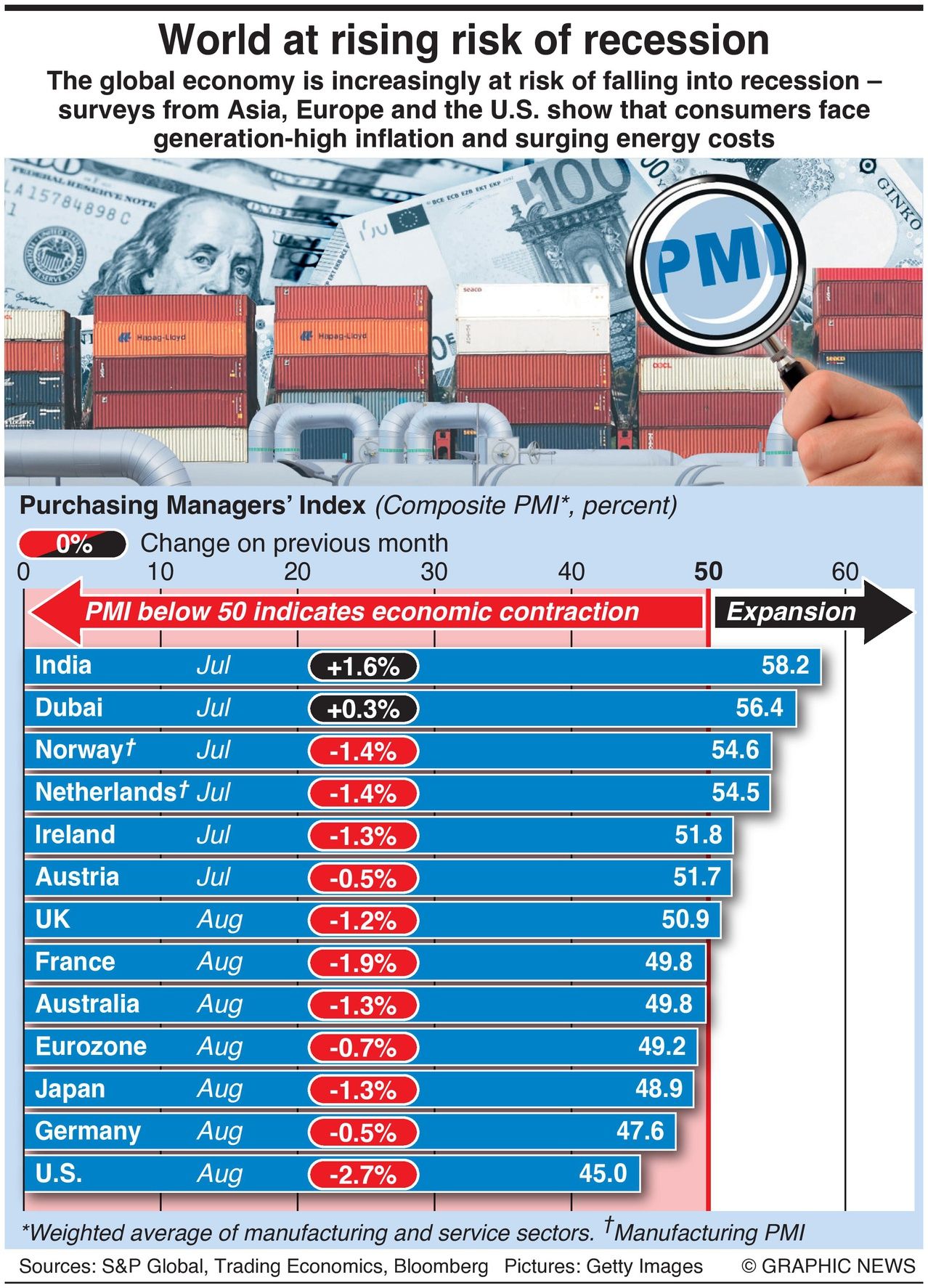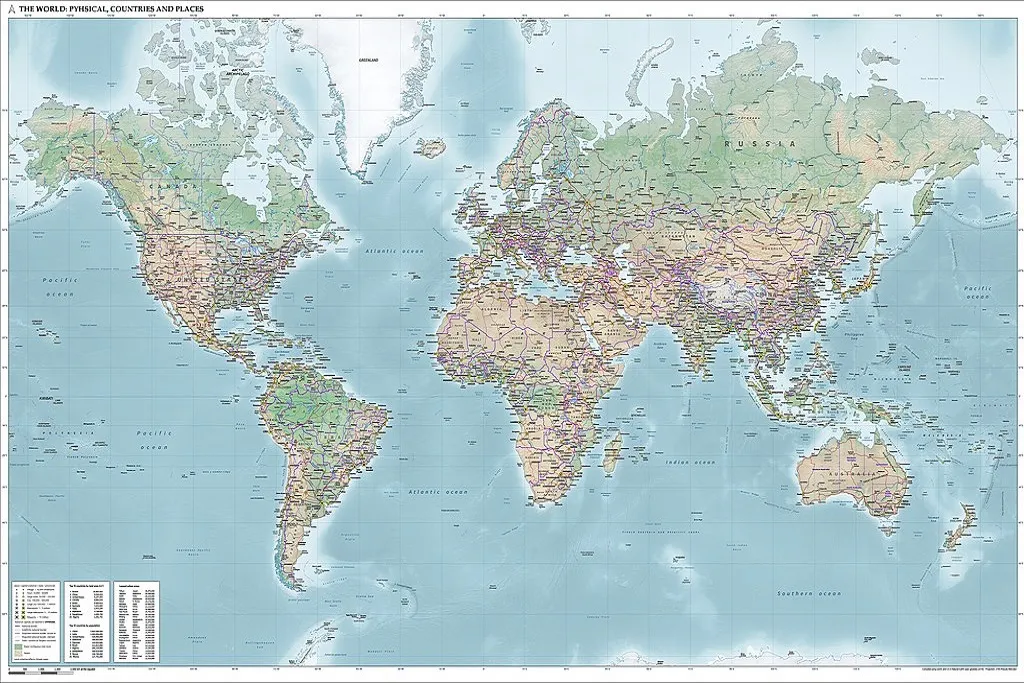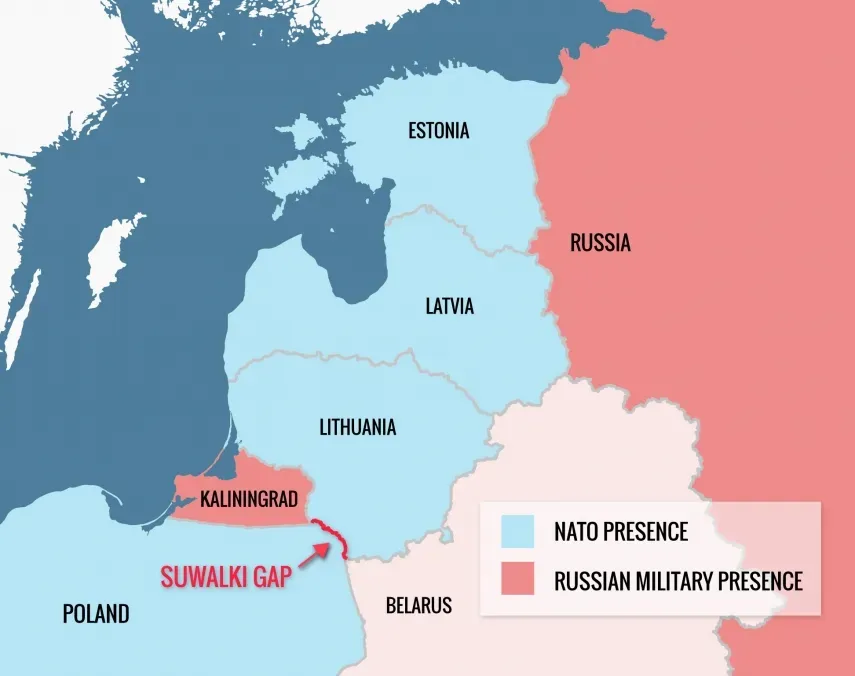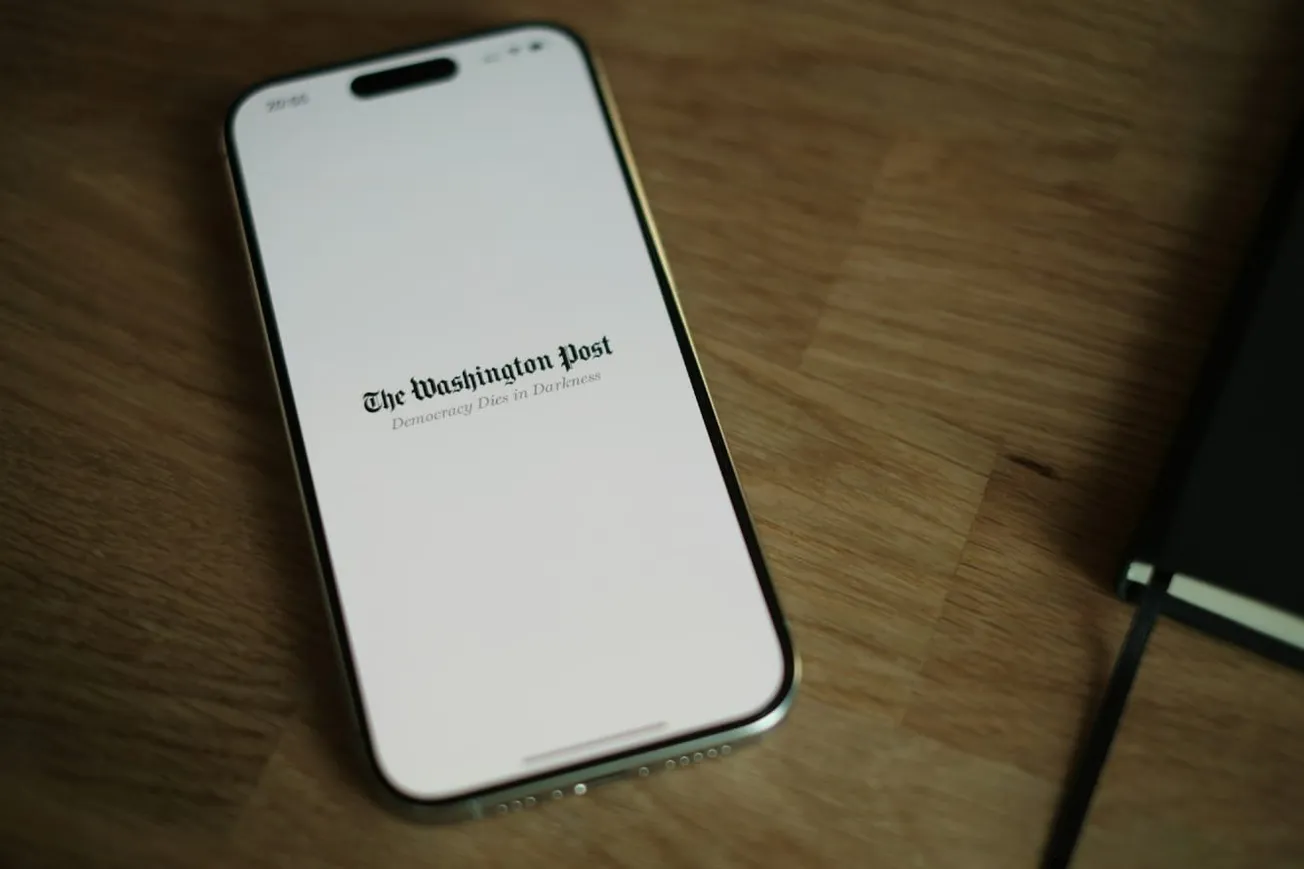
Multiple purchasing managers’ surveys showed business activity contracting and indicated little hope of a turnaround anytime soon.
The Purchasing Managers’ Index (PMI) data are compiled by S&P Global for more than 40 countries worldwide, providing an insight into the global economy’s health. A PMI above 50 percent indicates economic expansion, while below 50 percent suggests contraction and a potential recession.
In the U.S., private sector firms signaled a sharper fall in business activity during August. The decrease in output was the fastest seen since May 2020 and solid overall.
“The rate of contraction also outpaced anything recorded outside of the initial pandemic outbreak since the series began nearly 13 years ago,” S&P reported.
The U.S. composite PMI registered 45.0 percent in August, down from 47.7 percent in July, and indicated a second successive monthly decrease in total business activity.
In the Eurozone, S&P reported the PMI composite at 49.2 percent, down from 49.9 percent in July -- an 18-month low.
The data pinned the euro to a 20-year low against the dollar, with surging gas prices dragging Europe towards recession.
Private sector growth slowed to a crawl in the United Kingdom as factory output fell. The PMI remained above 50 percent but had dropped by 1.2 percent since July.
Japan’s factory growth slowed to a 19-month low of 48.8 percent, while Australia’s composite PMI fell below the 50 mark separating growth from contraction.





